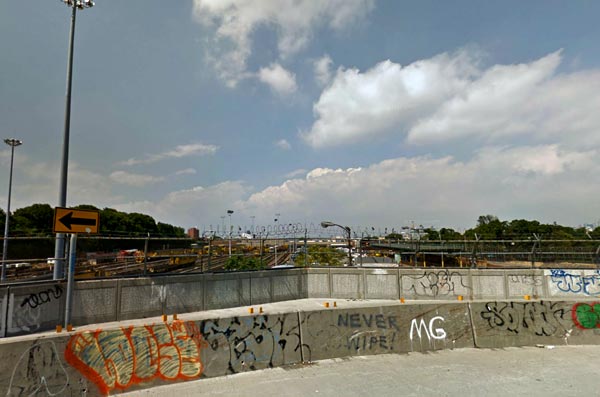A Natural Environment

Sunset Park street view, (c) Google Maps
Darren Aronofsky's 1998 movie "Pi" is very stupid, but it has an awesome techno soundtrack to which I frequently listen while coding. It interleaves electronica tracks with snippets of narration from the movie. Some of these, as I have said, are very stupid. Exhibit:
If you graph the numbers of any system, patterns emerge. Therefore, there are patterns everywhere in nature. So, what about the stock market?
Actually, if you graph the numbers of a system, sometimes patterns emerge and sometimes they do not. Some systems are deterministic, others stochastic, most are a mix. The stock market is noticeably resistant to merely numeric analysis. However, Aronofsky follows the silly lines above with a stroke of insight. He calls the global economy,
A vast network, screaming with life. A natural organism.
Right. We are natural organisms, after all, and so are our creations, the same way that both ants and their colonies are natural. When a particular creation—the Empire State Building, say, or the ad campaign for Huggies—is largely the deliberate outcome of one mind or a few, I'd call it "artifice." But when a human-made system outgrows the comprehension of any human mind or the control of any human institution, then it is natural.
I'm reading E. B. White's collection of essays from the mid-1950s, "The Points of My Compass." Much of the collection is about his country home in Maine, where he weathers hurricanes and watches a raccoon descend and ascend its tree every night. White writes,
I would feel more optimistic about a bright future for man if he spent less time proving that he can outwit Nature and more time tasting her sweetness and respecting her seniority.
I agree, and at the same time, there are twice as many of us now as then, and no stopping the growth. We can't all live in country homes—the country is too small. So how can we taste nature's sweetness?
I've been thinking for years that New York City is a natural environment. It grows upward and outward, or collapses or changes, beyond our comprehension. It's older than us and impossible to outwit. The city government and the big developers can cultivate patches of it, but as with any cultivation, as much depends on the times as their will. The tranquility one aims for on a walk in nature can be achieved in the city, too, if one walks with the same state of mind: this place grew by itself.
I asked a painter once, are there ugly colors in nature? He said there weren't. So why are there ugly colors in hotels? He said he'd thought about this question a lot, and it was a mystery. It is still a mystery to me, but part of the answer must be that we know nature made no choices. There's nothing to criticize in a sunset. It is the only way the sky can look tonight. Whereas a painting of a sunset on the wall of a cheap room is full of wrong choices.
Arguing the contrapositive: 18th-Century British with too much time on their hands made a science of critiquing landscapes, examining "the face of a country by the rules of picturesque beauty." It must have ruined nature for them permanently. It's when we let nature follow its own rules, not ours, that we taste its sweetness. When I abandon my judgment on an ugly block in New York, voilà: I'm in nature.
Of course we should try to limit population growth, and preserve what nature is left to us, and step into it (carefully) sometimes to remember what it was like. But my natural environment is the shops and sidewalks that grew here over the centuries. I like tasting their sweetness just as much.